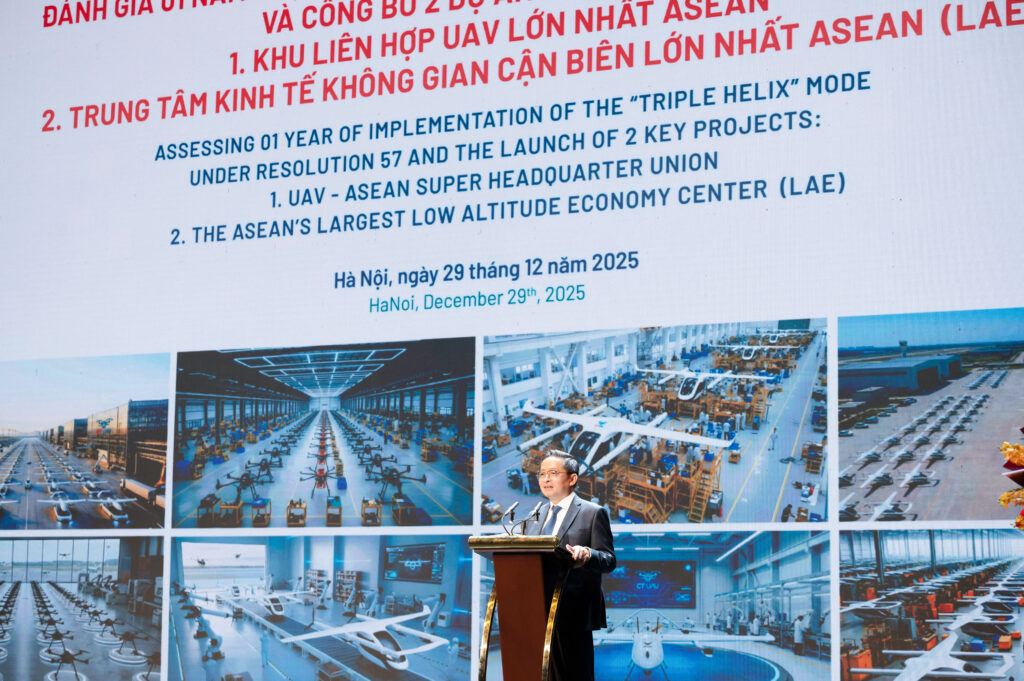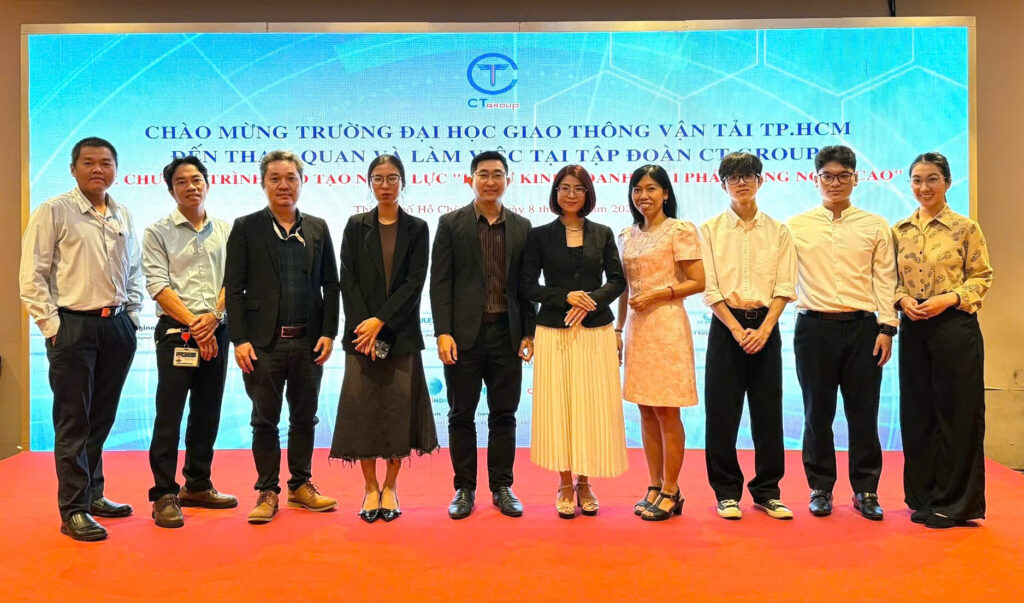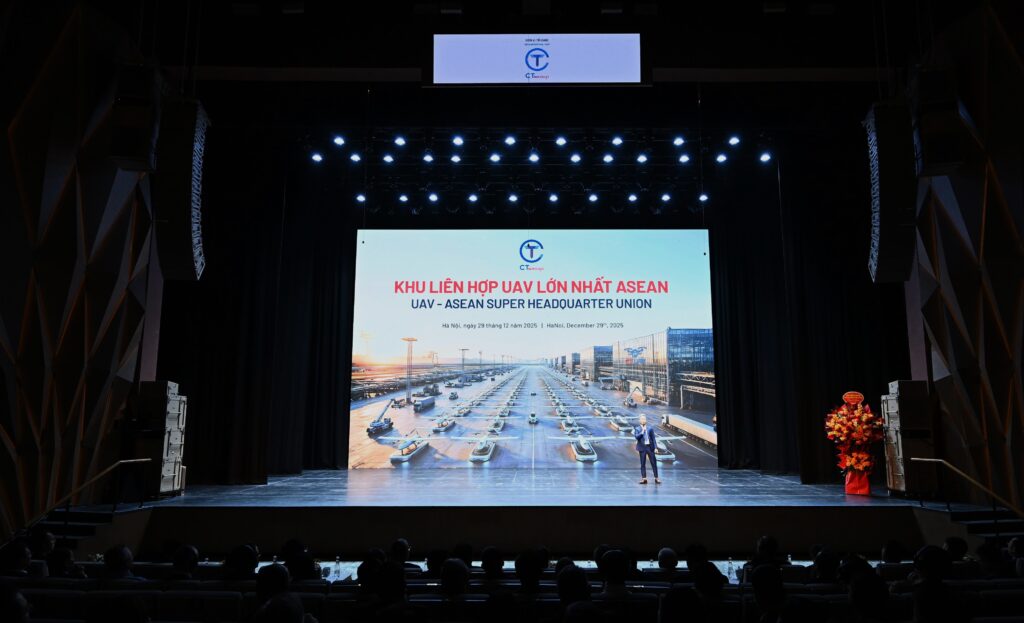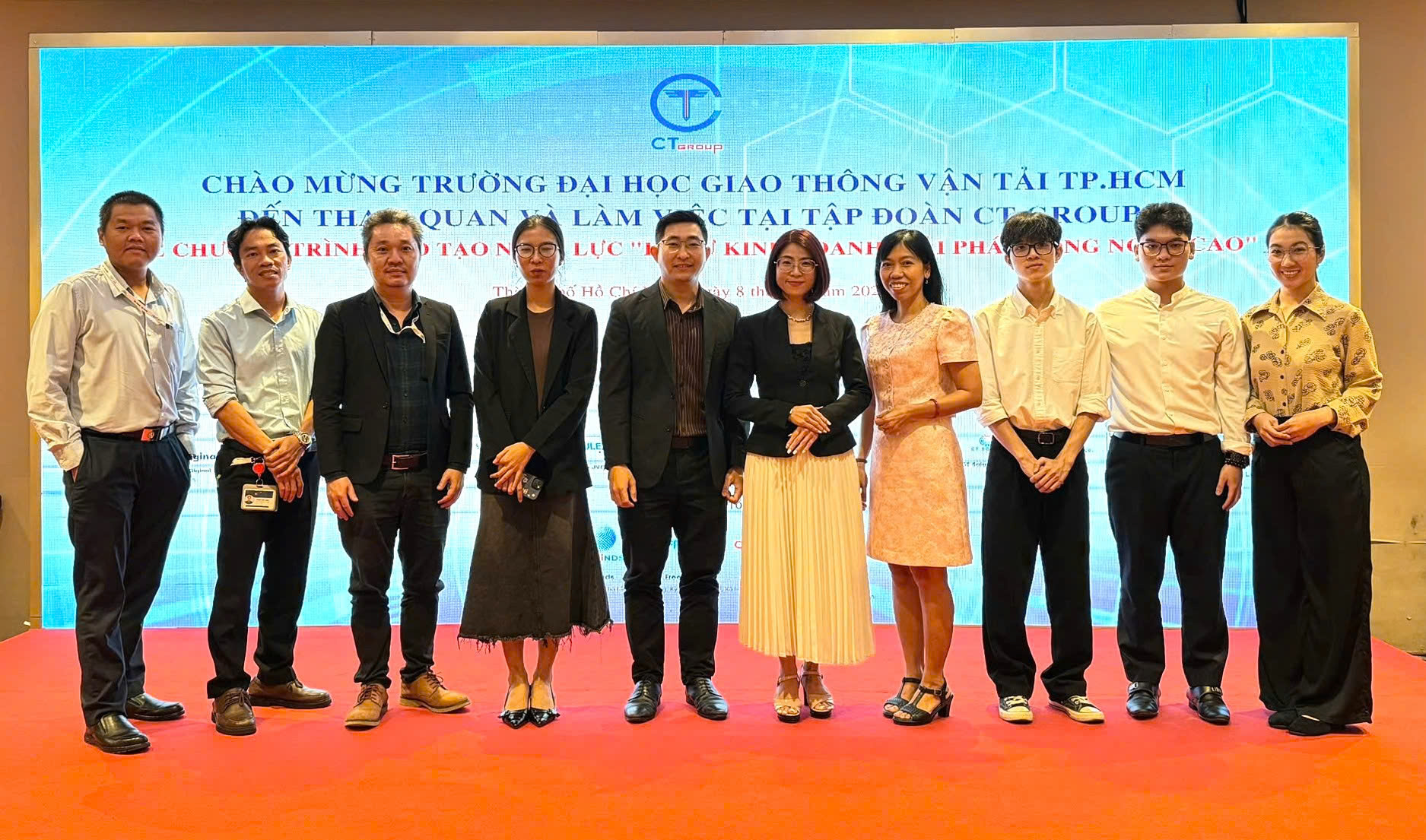On November 20, the second working day of the ASEAN University Network (AUN) and ASEAN+3 Rectors’ Conference, gathering rectors from 51 universities, continued at Can Tho University, focusing on in-depth discussions on agriculture, fisheries, climate change, and digital transformation – the vital issues for the region.
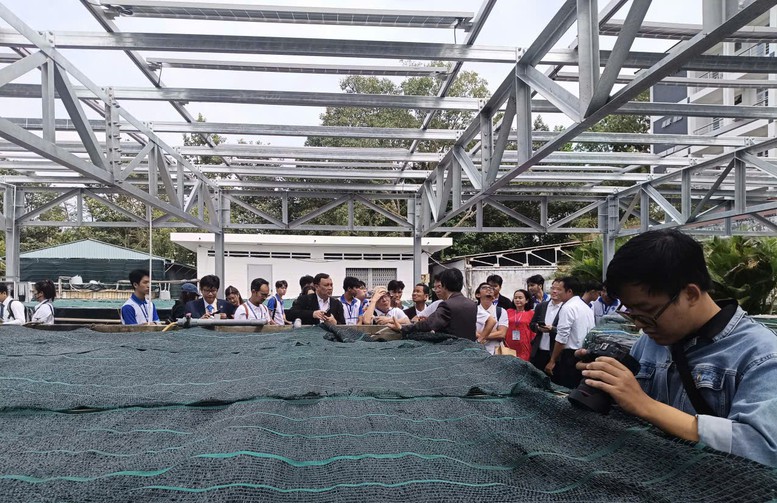
Delegates visiting the College of Aquaculture (Can Tho University)
ASEAN’s shared foundation: Agriculture, fisheries and climate challenges
Delegates collectively emphasized the urgency of key ASEAN concerns, including climate change, agriculture, fisheries and digital transformation.
According to Dr. Tran Ngoc Hai – Vice Rector of Can Tho University, ASEAN countries share similarities in natural conditions and economic structures, making it essential to delve into discussions on agriculture, fisheries, climate change, science and technology, and innovation. Science, technology and digital transformation remain the key drivers of ASEAN’s development. These topics are actively being researched across universities in the region, seeking innovative solutions to climate change along the development path.
The discussions highlighted that climate change, disease outbreaks, natural disasters, saltwater intrusion, and sea-level rise are affecting food security and livelihoods of hundreds of millions of people in ASEAN. Therefore, the role of universities as centers for human resource development and generators of new knowledge and technologies is fundamental in finding solutions for sustainable development in the region.
High-Tech fisheries, regional cooperation and sustainability in the Mekong Delta
Speaking at the conference, Prof. Vu Ngoc Ut, President of the College of Aquaculture and Fisheries (Can Tho University), shared that climate change is severely impacting the Mekong Delta. As a result, the university has conducted research and piloted various high-tech aquaculture models that are adaptable to climate change.
Several tested models have produced encouraging outcomes for local aquaculture, enhancing efficiency, sustainability, and reducing greenhouse gas emissions, thereby contributing to improved livelihoods and food safety. The College of Aquaculture and Fisheries has also strengthened regional and global cooperation, contributing to national food security and Vietnam’s Sustainable Development Goals.
Mr. Imai Junichi, Project Coordinator of the JICA–TC2 Project (Japan) at Can Tho University, highly appreciated the university’s scientific and technological contributions in aquaculture. He said these are valuable experiences for ASEAN institutions to reference and further improve technological solutions in the context of climate change across the region.
At the thematic session on climate resilience, water resources, and environmental sustainability -under the theme “Regional adaptation to climate change, water resource management and biodiversity”, scholars from Vietnam and ASEAN engaged in deep discussions. According to Assoc. Prof. Van Pham Dang Tri, Director of the Mekong Institute (Can Tho University), climate change poses major challenges to countries in terms of food security, storms, floods, inundation, sea-level rise and the protection of people from natural disasters and diseases.
From the perspective of the Mekong Delta, a climate-vulnerable region but also known as Vietnam’s “rice bowl” and “fish basket”, the shared models, technologies, and research findings were rated as highly relevant for other ASEAN countries where agriculture and fisheries remain key economic pillars.
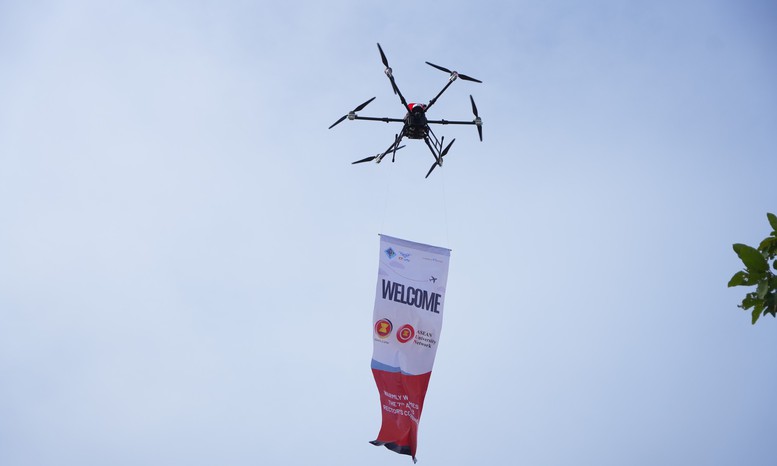
CT Group introduces agricultural drones and robotics technologies
AI, drones and UAV laboratories: Catalysts for smart agriculture in ASEAN
In the thematic group on technology, digital transformation and innovation, Prof. Dr. Tran Xuan Tu, Director of The Information Technology Institute – Vietnam National University, Hanoi, shared that the scientific community’s focus is on intelligent technology systems, digital tools, and innovation for development centered on the theme: “Artificial Intelligence (AI), drone technology, and data platforms for education, agriculture and disaster response.”
These technologies are increasingly prevalent throughout ASEAN; however, how to effectively operate them under the specific conditions of each country and locality remains a crucial concern. Large datasets on climate, soil, vegetation, and water resources if integrated with AI platforms and unmanned aerial vehicles (UAV) could significantly enhance disaster forecasting, production planning and resource management.
At the conference, CT Group was the only enterprise showcasing agricultural drone technology and robotics, presenting smart agriculture solutions and launching the UAV & Robotics Innovation Laboratory for Agriculture at Can Tho University. More than just a university–enterprise collaboration model, the laboratory is expected to become an incubator for new solutions in climate-resilient agricultural and aquaculture production across the region.
From discussions and workshops to field visits and model demonstrations, the AUN and ASEAN+3 Rectors’ Conference at Can Tho University affirmed the strong commitment of the regional university network to co-developing a sustainable ASEAN anchored in modern agriculture, advanced fisheries and deep digital transformation for food security and a safer future amid climate change.
________________________
Follow CT Group on Facebook for the latest updates and news!


